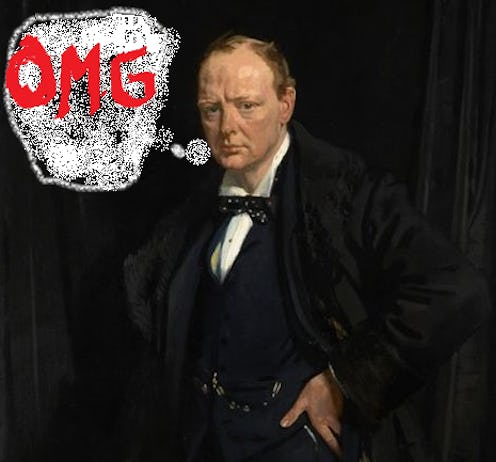Life
Proof That 'OMG's Been Around Forever

A New York Times interview with Michael Proffitt, new chief editor of the venerable Oxford English Dictionary, yields some fun facts about the historic usage of today's popular acronyms and slang. My favorite part is this reveal: The first recorded appearance of "O.M.G." as an abbreviation for "oh my God" comes from a 1919 letter to Winston Churchill. Looks like we can't blame that one on Millennials, y'all!
"Traditionalists lament the decline of the English language," Times writer Tom Rachman notes, "but historical quotations in the Oxford English Dictionary show that many infamous terms of today are older than expected." Here's the first recorded use the O.E.D. gives for O.M.G.:
1917 J. A. F. Fisher Let. 9 Sept. in Memories (1919) v. 78. I hear that a new order of Knighthood is on the tapis — O.M.G. (Oh! My God!) — Shower it on the Admiralty!!
And though Facebook was founded in 2004, the use of "unfriended" dates back to around Shakespeare's time. In a 1659 letter, someone named T. Fuller writes "I Hope, Sir, that we are not mutually Un-friended by this Difference which hath happened betwixt us," according to the O.E.D. Even using "like" as a filler word isn't originally a Gen X and Y tic.
1778 F. Burney II. xxiii. 222 Father grew quite uneasy, like, for fear of his Lordship’s taking offence. Evelina
Though the O.E.D. is revered for its comprehensiveness and authority, another big part of the dictionary's appeal is the historical citations that trace word usage over time. Though quotes generally came from literary texts in the dictionary's early days, it now cites everything from tweets to gravestone inscriptions. "The objective is to find the earliest and most illustrative uses of a word, not to grant benediction to anything as 'proper English,'" says the Times.
Image: Modified painting of Winston Churchill/Wikimedia Commons